- Your cart is empty
- Continue Shopping

Product
Mabtas is a medication that contains the active ingredient rituximab. It is commonly used in the treatment of various autoimmune diseases and certain types of cancer, particularly non-Hodgkin’s lymphoma and rheumatoid arthritis. Rituximab is classified as a monoclonal antibody and works by targeting specific cells in the immune system, particularly B cells, to modulate immune responses.
Here is a general description of Mabtas (Rituximab) 100 mg/10 ml Injection:
Generic Name: Rituximab
Brand Name: Mabtas
Class: Monoclonal Antibody
Indications: Mabtas (Rituximab) is indicated for the treatment of:
- Non-Hodgkin’s Lymphoma (NHL): In combination with chemotherapy, it is used for the treatment of certain types of NHL.
- Chronic Lymphocytic Leukemia (CLL): In combination with chemotherapy, it is used for the treatment of CLL.
- Rheumatoid Arthritis: In combination with methotrexate, it is used for the treatment of moderate to severe active rheumatoid arthritis.
- Granulomatosis with Polyangiitis (GPA) and Microscopic Polyangiitis (MPA): In combination with glucocorticoids, it is used for the treatment of GPA and MPA in adults.
- Moderate to Severe Pemphigus Vulgaris: In combination with corticosteroids, it is used for the treatment of moderate to severe pemphigus vulgaris.
Mechanism of Action: Rituximab is a monoclonal antibody that targets the CD20 antigen on the surface of B cells. By binding to CD20, rituximab selectively depletes B cells from the circulation and inhibits their ability to contribute to the immune response. This is particularly relevant in conditions where aberrant B cell activity plays a role, such as in certain cancers and autoimmune diseases.
Administration: Mabtas is administered as an intravenous (IV) infusion. The infusion is typically given in a healthcare setting under the supervision of trained medical professionals.
Dosage: The dosage and frequency of Mabtas infusions depend on the specific condition being treated, the patient’s weight, and other individual factors. Dosage adjustments may be made based on the response to treatment.
Efficacy: Rituximab has been shown to be effective in the treatment of various conditions, including non-Hodgkin’s lymphoma, chronic lymphocytic leukemia, rheumatoid arthritis, and certain autoimmune diseases.
Common Side Effects:
- Infusion reactions (fever, chills, nausea)
- Fatigue
- Headache
- Upper respiratory tract infections
- Low blood cell counts (neutropenia, thrombocytopenia)
Precautions:
- Infusion Reactions: Patients may experience infusion-related reactions during or after the infusion. Pre-medication with corticosteroids and antihistamines is often recommended to mitigate these reactions.
- Infections: Rituximab may increase the risk of infections, and patients should be monitored for signs of infection.
Important Considerations:
- Mabtas should be administered by healthcare professionals experienced in the use of immunosuppressive medications.
- Regular monitoring of blood cell counts and other laboratory parameters is typically performed during treatment.
- Patients should be informed about potential side effects, and any unusual symptoms should be reported to the healthcare provider promptly.
Mabtas (Rituximab) is a valuable therapeutic option in the management of various conditions characterized by abnormal immune responses. As with any medication, patients should discuss the potential benefits and risks with their healthcare provider, and close monitoring is essential during and after treatment. The information provided here is for general informational purposes and does not substitute professional medical advice.



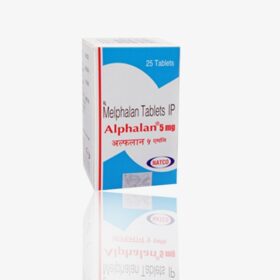
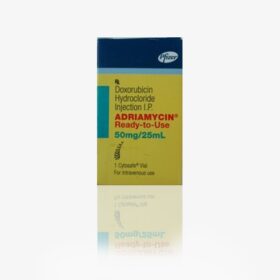
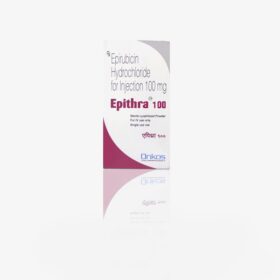
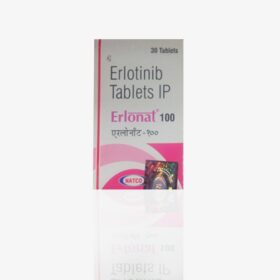
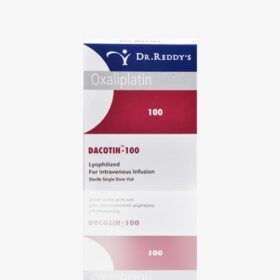
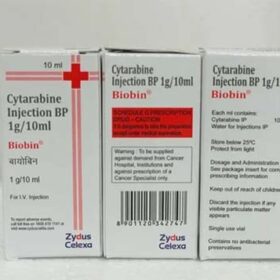
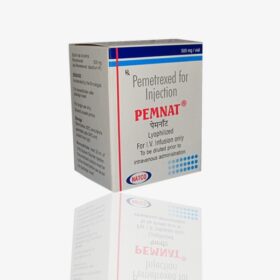
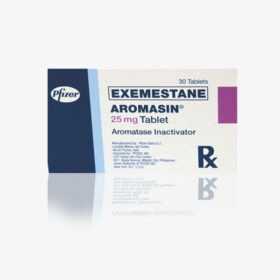



Reviews
There are no reviews yet.